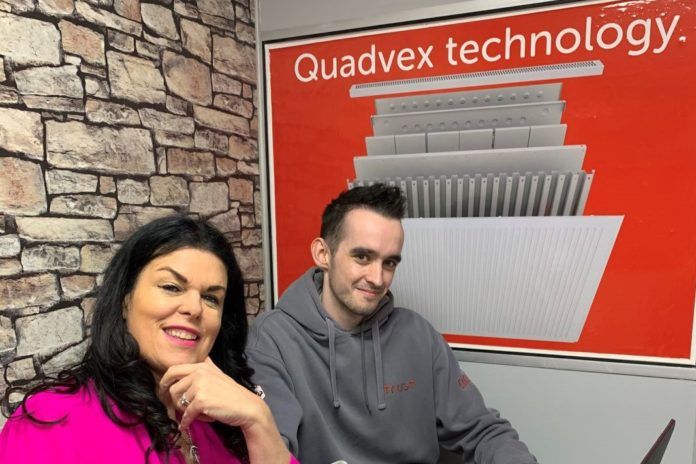
A Garforth-based business, which specialises in electric heating solutions, has received further funding from Innovate UK to help it continue the development and launch of a digital thermostat that will work remotely on its electrical radiator systems.
Trust Electric Heating will invest £70,000 into its thriving research and development programme, which aims to help eliminate fuel poverty for vulnerable people across the UK.
The project, which is being driven via a Knowledge Transfer Partnership with the University of Huddersfield, has already seen the creation of an integrated smart thermostat for Trust Electric’s own range of heaters.
The new round of funding will focus on the development of “CAVE”, due to its focus on solving fuel poverty issues for “Confined, Adults who are Vulnerable and Elderly”.
The web-based technology enables remote monitoring, diagnosis and control of electric heating systems, providing help and support for many who struggle with digital thermostat programming.
“Fuel poverty is an issue for everyone,” explains Trust Electric’s managing director Fiona Conor, who is leading the project team in partnership with the University of Huddersfield via a knowledge transfer partnership.
She adds: “During the pandemic it has been highlighted that many vulnerable adults are having challenges controlling their heating. Ordinarily, we would schedule a visit but this can take up to two weeks, which causes frustration and affects the well-being of the customer. However, under current circumstances, a home visit is not an option for many customers who are self-isolating.
“When smart thermostats were launched, no one really thought about less-digitally savvy people. Some customers simply turn their thermostats to manual and lose the advantages that are available on energy savings. Everyone offers big button controls but they are forgotten as customers don’t really know how to control their thermostats.
“Our CAVE thermostat gives us full remote control. We can look at timings and discuss energy efficiency together. Our web-based interface sends ‘traffic light’ signals, giving us an amber warning for a variety of faults. This then enables our office to put in a quick call to the individual without visiting the property and stops the problems this group encounters such as waiting for engineers to visit if something is not working.”
